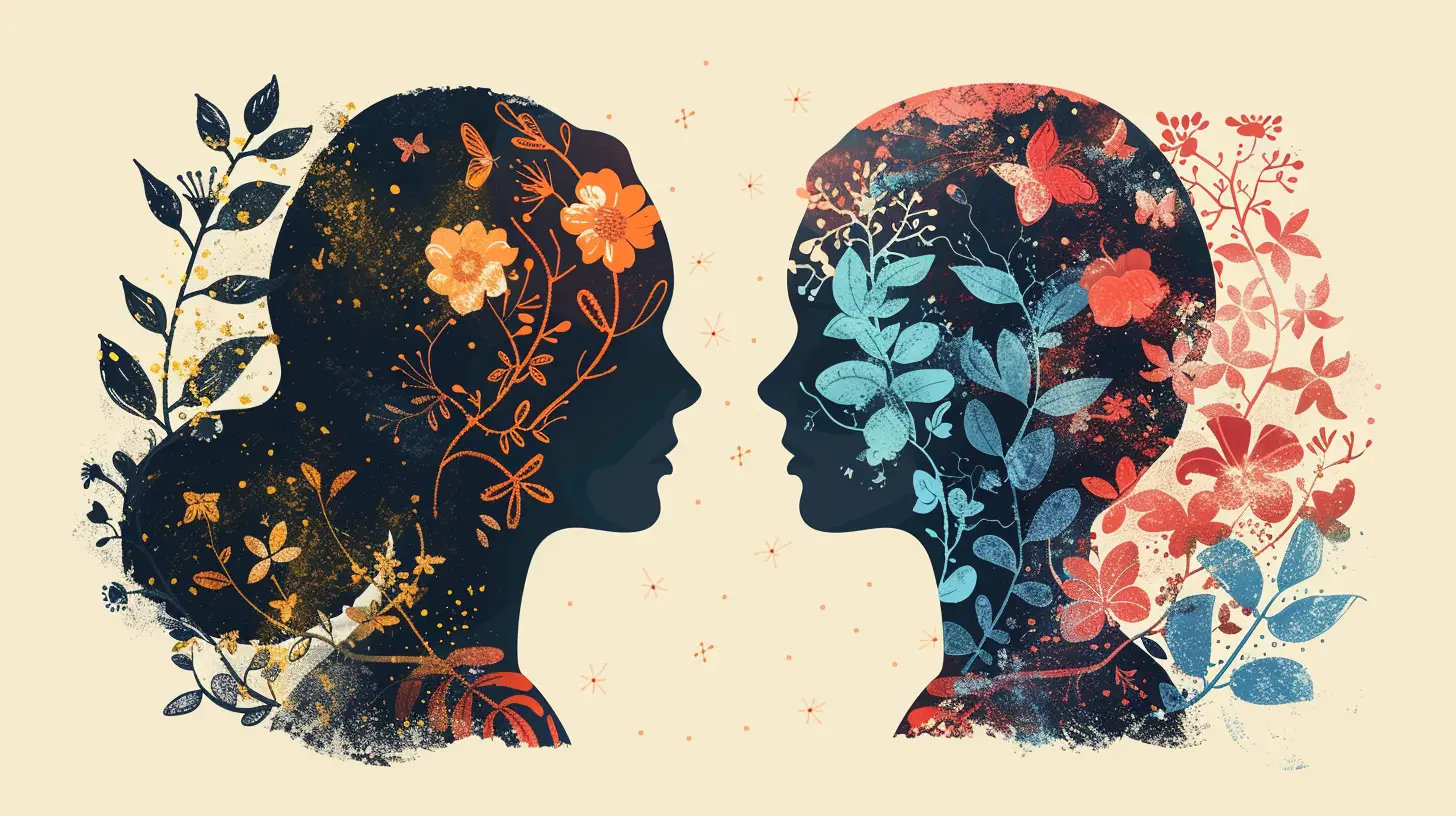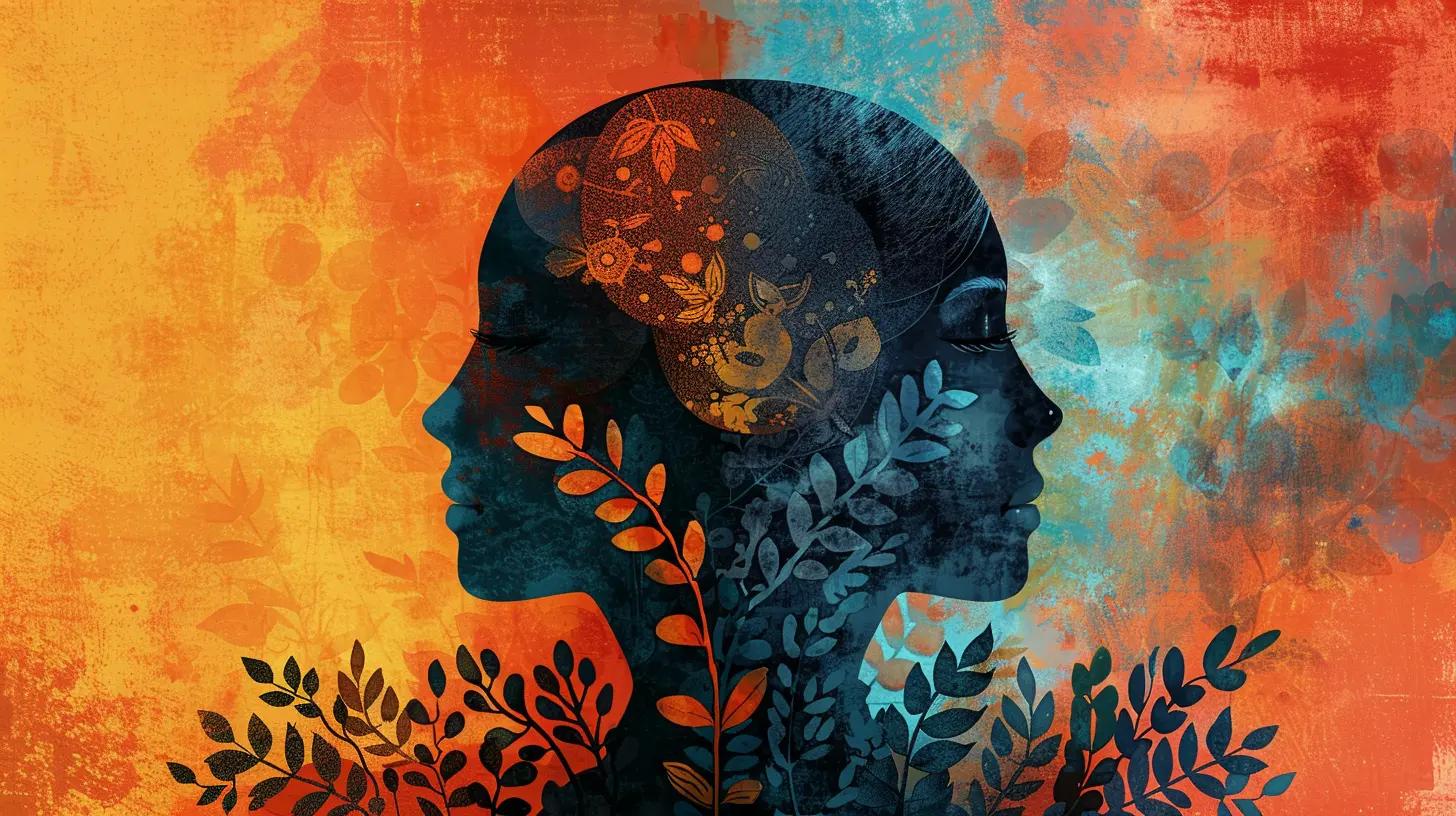The Intersection of Mental Health and Hormonal Imbalances
23 October 2025
Ah, hormones—the little chemical messengers that run the show inside our bodies. These sneaky things are responsible for everything from our sleep patterns to our mood swings (yes, those emotional rollercoasters aren’t just in your head). Now, throw mental health into the mix, and you’ve got yourself a wild, unpredictable cocktail of feelings, fatigue, and frustration.
But don’t worry, we’re about to break this all down in a way that makes sense—without the boring medical jargon. So, let’s dive into the tangled web of mental health and hormonal imbalances and figure out why your mood sometimes resembles a malfunctioning light switch.

Hormones: The Puppeteers Behind Your Emotions
If you think you’re in control of your emotions, think again. Your hormones are the real puppet masters, pulling the strings behind the scenes. They dictate how happy, sad, or irritable you feel on any given day. The major players here include:- Cortisol – Your "fight-or-flight" hormone, which makes sure you panic just the right amount when you see an email from your boss.
- Serotonin – The happiness hormone that sometimes goes on vacation without telling you.
- Estrogen & Progesterone – The dynamic duo that makes menstrual cycles a monthly adventure for women.
- Testosterone – Not just for men! This hormone affects energy levels, muscle mass, and even mood.
- Thyroid Hormones – Responsible for keeping your metabolism and energy levels in check. When out of whack, they can turn you into either a sloth or a jittery squirrel.
When these hormones get out of balance, they can wreak havoc on your mental health. Think mood swings, anxiety, depression, brain fog, and exhaustion. Sounds fun, right?

The Not-So-Friendly Relationship Between Hormones and Mental Health
Imagine your hormones as the coworkers you never asked for. When they work together smoothly, everything runs like a well-oiled machine. But when they start slacking off or overachieving, chaos ensues.Let’s break down how hormonal imbalances affect mental health in the most frustrating ways:
1. Cortisol and Stress: The Never-Ending Drama
Cortisol is like that overprotective parent who’s always worried something terrible is about to happen. It’s essential for managing stress, but too much of it can leave you feeling anxious, exhausted, and on edge 24/7.Chronic stress pushes your cortisol levels through the roof, making you feel like you’re stuck in survival mode all the time. Cue insomnia, irritability, and a sudden craving for unhealthy comfort food (hello, emotional eating!).
2. Thyroid Dysfunction: The Energy Zapper
Your thyroid is that one friend who either drags you down or makes you overly hyper. When it’s underactive (hypothyroidism), you’ll feel sluggish, depressed, and foggy-brained. But when it’s overactive (hyperthyroidism), get ready for anxiety, restlessness, and random heart palpitations.It’s like your body simply can’t decide whether to shut down or run a marathon.
3. The Rollercoaster of Estrogen and Progesterone
Ladies, ever feel like you’re losing your mind during your menstrual cycle? Blame estrogen and progesterone. These two hormones fluctuate throughout the month, playing a game of emotional ping-pong with your brain.Low estrogen? Say hello to mood swings, anxiety, and brain fog. Too much progesterone? Get ready for irritability, fatigue, and possibly crying over a dog food commercial.
And let’s not even get started on menopause, where your hormones decide to retire, leaving you with hot flashes, mood swings, and existential dread.
4. Testosterone: Not Just a "Man Thing"
While often associated with men, testosterone is equally important for women. Low levels can lead to depression, fatigue, and low motivation. Meanwhile, excess testosterone can cause aggression, irritability, and even acne (because why not add skin problems to the mix?).Testosterone is basically that one friend who’s either too chill or way too intense. No in-between.
5. Serotonin: The Moody VIP
Serotonin is your brain’s natural mood booster. But when your body decides it doesn’t feel like producing enough, you’re left feeling down, anxious, and overwhelmed.Low serotonin is often linked to depression, which is why many antidepressants focus on increasing serotonin levels. But wouldn’t it be nice if your brain just did its job without needing intervention?

Can You Fix Hormonal Imbalances and Improve Mental Health?
Luckily, your body isn’t a lost cause. While hormonal imbalances can make life miserable, there are ways to get things back on track. Spoiler alert: It’s not all about medication—lifestyle changes play a massive role too.1. Manage Stress Like a Pro
Since cortisol is the biggest stress troublemaker, learning how to manage stress is crucial. Try:- Deep breathing or meditation (yes, it actually works).
- Exercise (endorphins make you happy—just ask Elle Woods).
- Setting boundaries (because saying "no" is self-care).
2. Fix Your Sleep Schedule
Your body does some serious hormone regulation while you sleep. If your sleep schedule is a mess, your hormones will be too. Aim for 7–9 hours of quality sleep per night.3. Eat Like You Care About Your Health
Processed junk food is basically an open invitation for hormonal chaos. Instead, fuel your body with:- Protein (keeps you full and stabilizes blood sugar).
- Healthy fats (because your brain thrives on them).
- Leafy greens (your hormones love them).
4. Exercise (But in Moderation)
Too much exercise can spike cortisol, while too little can throw everything else off balance. The key? Find a happy medium with strength training, yoga, or even long walks.5. Get Your Hormones Checked
If you suspect a hormone imbalance, don’t just Google your symptoms and self-diagnose. A healthcare provider can run tests and give you actual answers. Novel idea, right?
Final Thoughts: Your Brain and Hormones Deserve a Break
Look, life is hard enough without your hormones adding unnecessary drama. Mental health struggles are real, and if your hormones are out of whack, they might be making everything ten times worse.The good news? You can take control. With the right lifestyle changes, stress management, and maybe some professional help, balance is totally possible. Your hormones might be running the show, but at least now you know how to keep them in check.
So, here’s to fewer mood swings, better energy, and a brain that actually cooperates. Cheers!
all images in this post were generated using AI tools
Category:
Hormonal BalanceAuthor:

Jackson Mahoney
Discussion
rate this article
1 comments
Clara McIlroy
This article beautifully highlights the critical link between mental health and hormonal imbalances. Thank you for shedding light on such an important topic!
November 2, 2025 at 4:37 AM

Jackson Mahoney
Thank you for your kind words! I'm glad you found the article informative.


